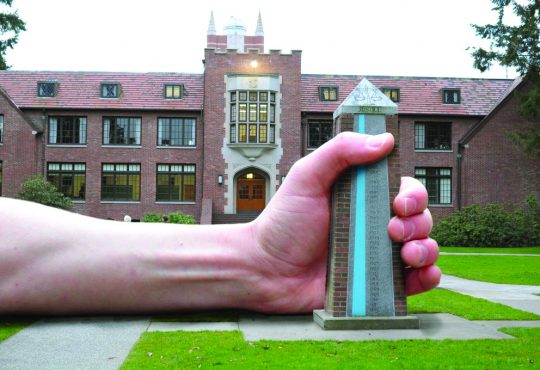Many of us have been there before: something or someone new and exciting comes along and all of a sudden we’re entranced. There’s a natural attraction to newness and uniqueness.
However, when does this attraction veer away from simple exploration of those who are different from us and enter into the danger zone of sexually exoticizing others?
The traditional script for the start of a relationship in which one or both members exoticizes the other begins with a simple thought of “I’ve never been with (insert difference here) before, I wonder what that’s like!” and ends with a sometimes deliberate fetishizing of a different culture, body type, sexual orientation, etc.
This sort of relationship can be problematic in that, at best, they make the other person feel as if they are simply an experiment for their lover; at worst, they become a validation of stereotypes that oftentimes come from more prejudicial sources.
We often see this type of fetishization of others when people boast that they are simply only attracted to a certain body type, race, etc. based on stereotypes that exist in common discourse about that group.
Many stereotypes about the virility or sexual permissiveness—as well as more negative stereotypes concerning tendencies towards more rough forms of intercourse, as well as a lack of sexual power—rear their heads when frank conversations about sex converge with conversations about race in particular. Black men are often seen as sexually strong and virile, Asian women innocent and submissive and Latinos sexually adventurous.
While these stereotypes may be true for individual members of these groups, they do not encompass the whole of any group. To choose a sexual partner purely based on such stereotypes creates disappointment on both sides, and often feelings of dehumanization on the side of the person being exoticized.
This dehumanizing of “the other” also exists in communities that fetishize certain eating disorders, or in some cases certain religious traditions and stereotypes about certain sexualities.
The attraction comes from a feeling that those who are different are strange, unknowable and often a prize to be won. This ends with the objectification of others based on purely superficial traits, which have little to no bearing on who they are as a person.
In general, the easiest way to combat this objectifying behavior is simply to get to know people without the pretense of what may seem most obvious about them.
While it is common for those outside a certain community to fetishize those within, the same stereotypes are often applied within communities, perpetuating the same tropes of “otherness” that differentiate people physically, racially and sexually.
While it’s sometimes hard to define what may be sexually objectifying or generalizing towards a specific group of people, it’s important to keep in mind that different types of people can surprise you in how they treat others and how they choose to express themselves—both in and outside the bedroom.
While it’s fun to try things out with someone new, it’s important to respect their humanity without pretense. If you’re into strong men, look for them in all their varieties. The same goes for partners with a certain coveted body part, or a tendency to be a bit more feisty when they have sex.






